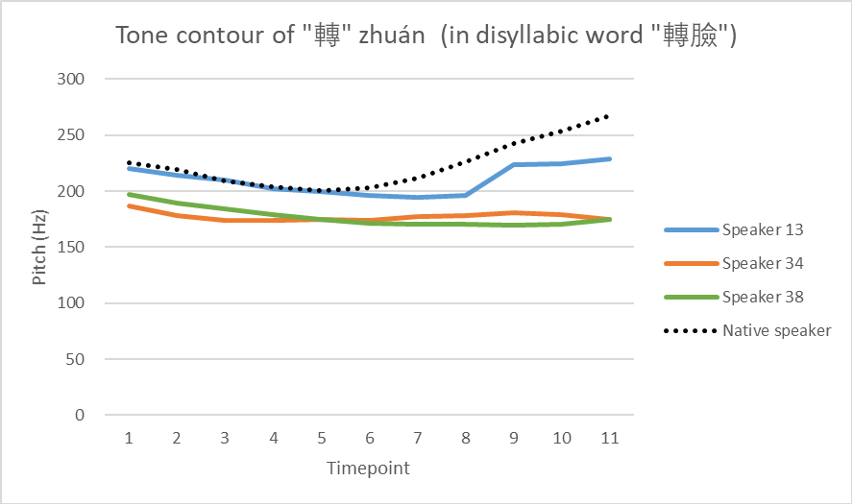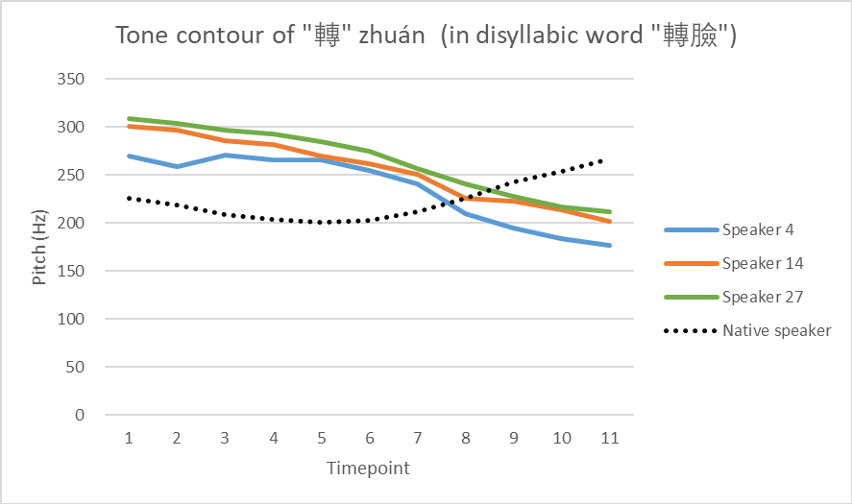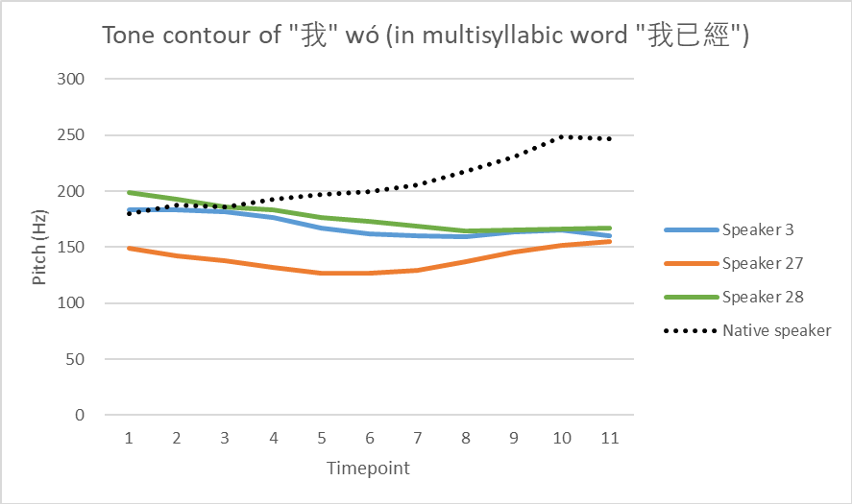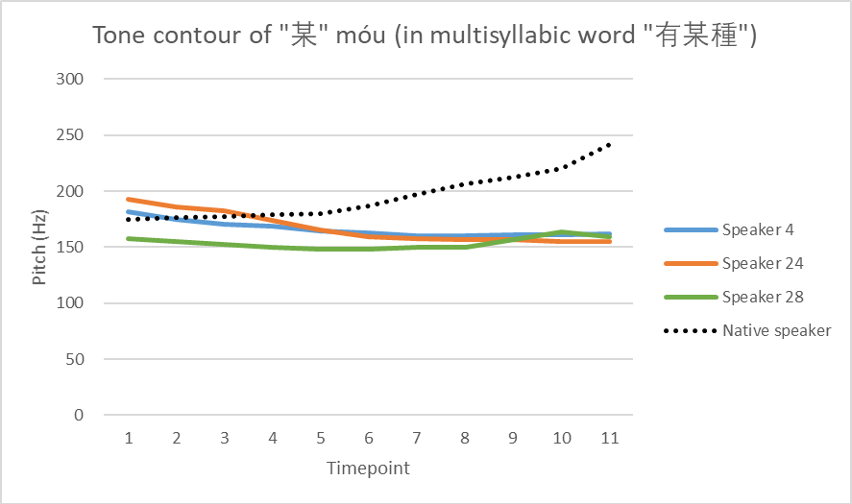Tone 3 sandhi for T3+T3 word


Native speaker
Speaker 13
Speaker 34
Speaker 38
Speaker 4
Speaker 14
Speaker 27
- In a disyllabic word with Tone 3 for both the first and the second syllables, Tone 3 for the first syllable tend to have more dramatic rising trend and smaller difference in pitch value between the starting and dipping points, similar to Tone 2.
- The native speaker's tone contour of “轉” in the word “轉臉” shows falling trend, from 230Hz at the beginning to 200Hz at the dipping point; and then rises dramatically from 200Hz at the dipping point to 270Hz at the end.
- There are two types of common problems for Tone 3 sandhi in disyllabic words - the first type is that rising trend from the dipping point to the end is not dramatic enough (see the first figure); and the second type is there is an absence of Tone 3 sandhi rule application (see the second figure), the learners remain Tone 4 for “轉” in the word “轉臉”.
Tone sandhi for T3+T3+T1/2/4 word

Native speaker
Speaker 27
Speaker 3
Speaker 28
- In a trisyllabic word with Tone 3 for both the first and the second syllables, and Tone 1/2/4/for the third syllable, Tone 3 for the first syllable tend to have more dramatic rising trend similar to Tone 2.
- The native speaker's tone contour of “我” in the word “我已經” shows rising trend from 170Hz at the beginning to 250Hz at the end.
- The learners did not apply Tone 3 sandhi rules in reading the word “我已經” . The tone contours show falling or dipping trends.
Tone sandhi for T3+T3+T3 word

Native speaker
Speaker 24
Speaker 4
Speaker 28
- In a trisyllabic word with Tone 3 for all three syllables, Tone 3 for the second syllable tend to have more dramatic rising trend similar to Tone 2.
- The native speaker's tone contour of “某” in the word “有某種” shows rising trend from 170Hz at the beginning to 250Hz at the end.
- The learners did not apply Tone 3 sandhi rules in reading the word “有某種” . The tone contours show falling trends.
Suggestions for teachers:
- explicitly introduce the three situations for applying Tone 3 sandhi rules in multisyllabic words
- remind students to understand tone contour trends for the three situations
Hits: 4326